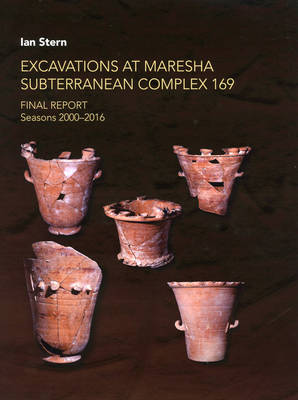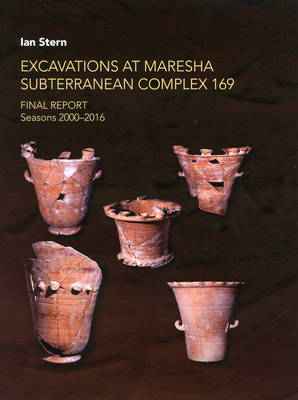
- Afhalen na 1 uur in een winkel met voorraad
- Gratis thuislevering in België vanaf € 30
- Ruim aanbod met 7 miljoen producten
- Afhalen na 1 uur in een winkel met voorraad
- Gratis thuislevering in België vanaf € 30
- Ruim aanbod met 7 miljoen producten
Zoeken
€ 114,95
+ 229 punten
Omschrijving
Tel Maresha is located in the foothills of Israel's Judaean Mountains. It was established in the Iron Age II (circa 700 BCE) and is mentioned in the Hebrew Bible (Josh 15:44; I Chron. 2:42). But it was mainly a Hellenistic-period town - a major Idumean political and administrative center. One of the unique and fascinating aspects of Maresha is its subterranean city - hundreds of underground galleries and chambers filled to the gills with artifacts. This volume is a report of the excavations of one of these rich subterranean complexes - SC 169 - which contained a full corpus of Hellenistic pottery forms - both local and exotic altars, figurines, amulets, seals and seal impressions, hundreds of inscriptions in Greek and Aramaic, coins, jewelry and much more. These finds tell the story of an affluent cosmopolitan society comprised of Idumeans, Phoenicians, Greeks, and Jews, who lived together in a vibrant urban setting until the city was destroyed, probably by the Jewish Hasmonean kingdom in 104 BCE.
Specificaties
Betrokkenen
- Auteur(s):
- Uitgeverij:
Inhoud
- Aantal bladzijden:
- 407
- Taal:
- Engels
- Reeks:
Eigenschappen
- Productcode (EAN):
- 9780878201792
- Verschijningsdatum:
- 12/08/2019
- Uitvoering:
- Hardcover
- Formaat:
- Genaaid
- Afmetingen:
- 229 mm x 279 mm
- Gewicht:
- 1474 g

Alleen bij Standaard Boekhandel
+ 229 punten op je klantenkaart van Standaard Boekhandel
Beoordelingen
We publiceren alleen reviews die voldoen aan de voorwaarden voor reviews. Bekijk onze voorwaarden voor reviews.











